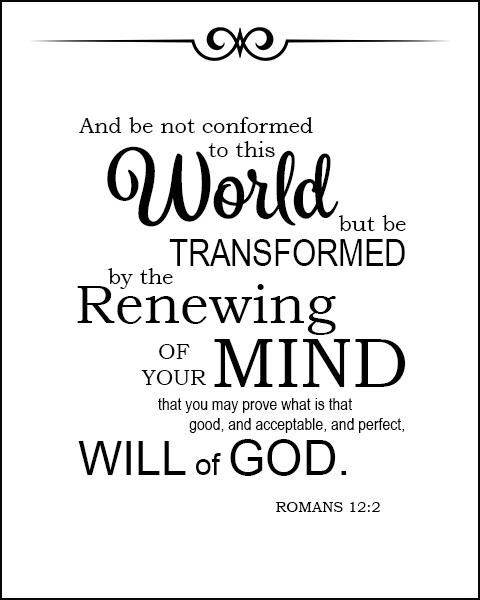If you were allowed to choose the generation you would be a part of, which would you choose? Some generations in the past? Some in the future? Or would you be happy to choose the one you are currently a part of?
On the one hand, we are sometimes enamored by the past to the extent that we create some idealistic versions of it.
We tend to attach a perfection to the past that wasn’t there; in a bid to decry the failures of the present, we rest in some nostalgic feelings of the past. Moreso, we sometimes wish we can recreate that past in the present, ignoring the peculiarities of the real-life we have been called to live in the present.
On the other hand, we are sometimes enamored by the future that we create our utopian dreams about what an idealistic future will look like.
Instead of seeing the perfection we desire in the past, like some do, we see it in the future. We decry the insufficiencies of the present by resting in our anticipation of the future where those insufficiencies have gone with the wind of time. Time, we believe, cures all things. So like those enamored by the past, we also try to start creating utopias, ignoring the reality of human nature and the peculiarities of the time we live in.
In Paul’s sermon in Pisidian Antioch, he made the point that the prophecy of Psalms 16:10 — you will not let your holy one see decay — was not fulfilled in David but in great David’s greater Son — Jesus (Acts 13:35-37). David indeed lived and died, and his body decayed in the grave but Jesus lived, died, and was resurrected on the third day.
The way Paul described David’s life is instructional for us today. “David…served God’s purpose in his own generation” (verse 36).
David came to the scene of redemptive history at a particular point and he served God’s purpose in that particular generation that was properly his.
What does it mean for us believers living in the 21st century to serve God’s purpose in our own generation?
How do we appreciate the past and care about future generations without becoming idealistic and utopian, forgetting our calling to serve God’s purpose in our own generation?
Let’s find out.
What are you serving?
There is a difference between serving one’s generation and serving God’s purpose in one’s generation. It’s a difference of ultimate commitments.
A man who serves his generation sees his generation as ultimate — an end in itself of which there is nothing transcendent.
But a man who serves God’s purpose in his generation recognises the primacy of God’s purpose (the ultimate END) as the determinant of the ends and means that we should pursue.
Absolutising our generation as an end in itself leads to idolatry.
It will lead us to believe that our generation is the culmination of all perfections, that we are better than those who have gone before us, that we need not interact with the dead and the unborn.
We will begin to think that the more modern anything is the better and that anything that comes out of our modernist cultures is thereby always right, since there is no transcendent (and higher) good by which we measure our generation.
Paul believed that a generation can be evil — warped and crooked (Philippians 2:14-15) — such that the only way to serve God’s purpose in such a generation is to be counter-cultural. Also, Jesus taught that a generation can be wicked and adulterous in its rejection of God’s truth (Matthew 16:4).
Therefore, the only way to avoid making an idol of our generation is to realise that there is an ultimate and transcendent goodness revealed in nature and the Scriptures that our generation must conform to.
In the measure by which we do not conform to the good and goods that transcend our generation, we are warped, crooked, wicked, and adulterous.
A Christian must be able to acknowledge the evils of his generation without at the same time “removing” himself from the reality of his participation in that generation.
Our calling is to be blameless and pure (Philippians 2:15), shining like stars, dispelling the darkness of our generation as we hold firmly to the word of life (verse 16).
Notice that we are not just to live blameless and pure lives in our cocoons, isolated from the ugly realities of our cultures; instead, we are to hold forth the word of life so that we can shine like stars and dispel the darkness.
As Jesus said, “You are the light of the world. A town built on a hill cannot be hidden. Neither do people light a lamp and put it under a bowl. Instead, they put it on its stand, and it gives light to everyone in the house” (Mathew 5:14-15).

The evils of the past
Sometimes, the evils of the present generation are inherited from past generations. In many ways, we follow the ways of those who have gone before us.
The ancestors of the Pharisees of Jesus’ days shed the blood of the prophets and their heirs completed what they started (Mathew 23:29-32). Past generations shed righteous blood and the Pharisees of Jesus’ days tagged along (verses 33-36).
One thing this tells us is that the past is not as ideal as we thought. Just as we should not idolize the present by denying its evils, we must not idolize the past by denying its evils. Moreso, we must acknowledge all the ways we have embraced, extended, and compounded those evils.
But failing to idealize the past is not the same thing as refusing to learn from it. Paul wanted the Corinthian believers of his day to see the evils of Israel’s past and learn from them (1 Corinthians 10). They committed sexual immorality, Paul said, so you should not (verse 8). They tempted Christ so you should not (verse 9). They grumbled, so you should not (verse 10), etc.
The author of Hebrews also used the unbelief of the past to encourage the Hebrews to turn away from an unbelieving and hardened heart (Hebrews 3:7-19).
One of the ways to serve God’s purpose in our generation is to use the failings of the past to improve the present. Instead of trying to go back to the past, we should be seeking to use its lessons to be more faithful in the present.
That we are responsible to be more faithful than those that have gone before us is evident from Jesus’ teachings.
All the men of Nineveh heard was the preaching of Jonah but the Jews of Jesus’ days heard the one who was greater than Jonah; therefore, they had a greater responsibility to the truth (Mathew 12:41). The Queen of the South only heard the wisdom of Solomon but those of Jesus’ days heard one who was greater than Solomon, one who was wisdom personified (verse 42).
Because we have the history of our forebears before us, we have a responsibility to do better. We have seen the evil results of some of their bad choices and we must learn to avoid the same. They have handed us the baton and we must take the race forward.

The goods of the past
But some have taken the above idea too far through post-mortem blatant condemnations of people who have gone before us in spite of the good they have done.
To take up Jesus again, people are responsible for the level of light they received in their generation. The men of Nineveh and the Queen of the South were responsible for the message of Jonah and Solomon they heard, not the message of Jesus they didn’t hear.
In Hebrews 11, the author commended the faith of many people in the Old Testament from Abel onwards. Some of these people did things that those of us living post-Christ will find objectionable (e.g. polygamy). But it’s wrong to measure their lives by the standards that we, with fuller light, live by today.
You cannot condemn the men of Nineveh or the Queen of the South for not believing specifically in an incarnate Jesus Christ who died on a cross and was resurrected. Nor can you condemn Abraham because of Ephesians 5.
Furthermore, many of the people in Faith’s hall of fame did things that were wrong even by the standards of their day. Yet, God did not think that they were worthy of no honour.
The point is that we cannot measure the righteousness of those in the past by truths that we have only come to know and agree upon fully in our generation. We should remember that the next generation will also agree on truths that will make some of our present “self-righteousness” horrible in their eyes.
Moreso, we must not recognise the evils of the past to the exclusion of its goods. Those who have lived before us have bequeathed treasures to us that we can only be thankful for. And we must honour them for those treasures regardless of their imperfections since we ourselves are imperfect.
Therefore, to serve God’s purpose in our generation is to appreciate, treasure, and conserve the goods that our forebears have passed to us, let go of the evils, and do both in a spirit of humility that honours our forebears (despite their flaws or inadequate knowledge) without idolising them.

On reformation
Once we recognise that those in the past have discovered many good things, we’ll admit that sometimes the best way to go forward is to go backward.
Humility requires us to admit that our generation is not self-sufficient. People who are wiser have gone before us and we’ll be stupid if we think we can dump all the knowledge and wisdom that have come from the experiences and reasonings of the past and start afresh.
To be iconoclasts just for the sake of it is the utmost prideful disposition. We must recognise that sometimes what we need in our present impasse is wisdom from the past.
This is why many reformations in the Bible involved a discovery of the past. Josiah discovered the book of the law from the past and began to reform the Israel of his day (2 Kings 22). Elijah rejected the Baal worship of the present for the monotheism that was the heritage of Israel (1 Kings 18).
Our recognition of the goods of the past will often lead us to reform the present with the wisdom of the past.
Again, this doesn’t mean that everything in the past is better. There were evils and falsehoods in the past and we must bury them. We must not be idealistic about the past. However, we must also recognise the good things from the past that we have lost and make U-turns. Humility requires it.
However, applying wisdom from the past is different from recreating the past. There is no way to recreate the past without denying the evils of the past and the goods of the present. A forced return to the past will involve the destruction of the present.
Prudence will tell us to mine the wisdom and goods of the past and apply them to our present situations and circumstances in a way that doesn’t destroy the present. In this sense, we must be realists, recognizing how some of the wisdom of the past will take a different shape from their previous instantiations.
Rejecting Utopians
Realism also requires that we understand that the perfection of humanity, together with the whole of creation, will only come in the eschaton.
What we must do is take the best from the past, add the wisdom of the present, and bequeath them to those who will come after us.
This bequeathing of treasures to the next generation was the hallmark of the Israeli family and nation (Deuteronomy 6:20-25, Joshua 4:1-7). And it’s now a pattern for believers (2 Timothy 1:5, 2:22, Ephesians 6:4)
Thinking that we can start all over again and create a utopian human community (local or global) is infantile.
Every utopian attempt in the past has ended up in the destruction of the same humans that the instigators wanted to perfect.
We can improve, we can take the race forward, we can be more faithful than our forebears. But what we can’t do is force heaven down to earth or run the race in a way that leaves no race for the next generation to run. Attempting to create heaven on earth ends in the creation of hell.
Therefore, we must serve God’s purpose in our generation by refusing to fantasise about the ideal human future and get to work with all the dirt that real life presents us with, and try to contribute our part to the unfolding building.
We do this while we wait for the eschaton, where humanity and creation will be perfected in the presence of the triune God, all sins and weaknesses gone and our union with the divine finally consummated.
That’s the only utopia we should look forward to. And it’s a utopia that will come when God wants it to come.

Moving forward with wisdom
To serve God in our generation is to be like the men of Issachar who understood the time and knew what Israel was to do (1 Chronicles 12:32).
Their understanding of the realities of their time informed their knowledge of what Israel was to do.
We must also understand our generation and gain wisdom on what we need to do. We can’t simply idealise the past or idolise the present.
Our first step is to understand all the ways that our generation does not conform to God’s revealed will – revealed in natural law and divine law. We must know how our generation deviates from ultimate goodness and how we have walked paths that are not good for us and are opposed to God’s redemptive purpose.
Then we must pray for wisdom to understand what to do — not to return us to an idealised past or bring us to a utopian future but to make the very present that God has given us more conformable to the objective and transcendent will and purpose of him who has called us.

Conclusion
Whatever generation you wished you were born in, this is the one you were born in (by God’s sovereign plan).
This is the one — with all its failings, inadequacies, and evils — where you must shine as light and hold forth the word of life.
Instead of complaining about everything that is awful about it, we must get to work, identifying what’s wrong with it (by the objective standard of God’s revelation, not the past or future) and praying for God’s wisdom to understand what to do to bring it into conformity to God’s will and purpose.
God, your almighty word
Chaos and darkness heard,
And took their flight:
Hear us, we humbly pray,
And where the gospel-day
Sheds not its glorious ray,
Let there be light!



